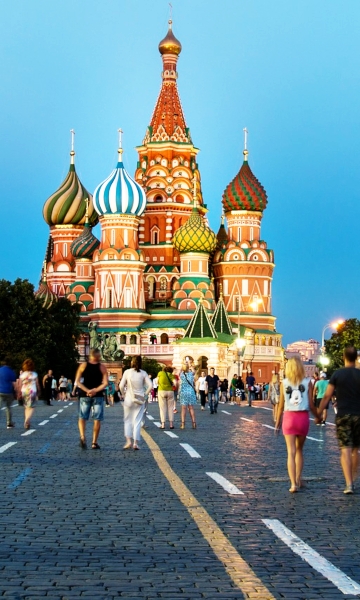Since Sergei Sobyanin put on his mayor’s sash in 2010, Moscow has become a true Smart City. Each year, 150 so-called “Smart City” projects are run in order to enhance the quality of life for Moscow’s 12 million inhabitants by improving public services, urban infrastructure, etc. The public budget allocated to this policy is € 600 million per year, which shows how committed the local authorities are.
75% of Moscow's public services are accessible digitally through online portals or one of the ten available mobile applications, representing 650 million processed requests per year. These include the Mobile Health application allowing 9 million patients to digitally manage their prescriptions and billing. Moscow has trained 21,000 practitioners to use these digital services with amazing results: in 2017, the city’s population made 187 million medical appointments via this mobile platform.
The Russian capital boasts an excellent internet connection, too. On top of excellent 4G coverage, Moscow exploits 2,000 Wi-Fi hotspots throughout the city: in the tube, on the bus, etc., which represents 15.5 km² of effective coverage with a single authentication required. Moscow was also one of the first cities to focus on IoT: in 2013, the local government installed a SIGFOX network to manage 15,000 connected parking spaces within city grounds. Furthermore, there are USB ports available at each train station as well as in the tube, the bus or on benches – in Moscow, staying connected is a piece of cake!
Like all big cities, Moscow is plagued by traffic congestion problems, which is why the city launched a plan to encourage alternative mobility. Nevertheless, the prerequisite for a change of mentality is to understand the behaviour of citizens, which is why the Traffic Management Center pilots a network of 2,000 cameras, 3,600 sensors and 2,000 traffic lights. It also analyses mobile data to optimise traffic flows. Furthermore, it is able to predict traffic 3 hours beforehand, making it possible to alert users of potential traffic disruptions via Twitter or Telegram. There are real-time information panels installed on all major axes, too. The ultimate goal is to reduce traffic congestion by promoting alternative routes and public transport. The centre also manages emergency vehicle routes by detecting the shortest way in all traffic conditions.
According to the Moscow City Council, the use of the ITS (Intelligent Transport System) has allowed the average speed of vehicles to increase by 10% and to reduce the search time of parking spaces by 20% since 2015. This results in less fuel consumption and therefore less air pollutant emissions.
In short, Moskou’s city model is clearly geared towards the future, driving a more sustainable way of working and living.
For more information, please click
here.
